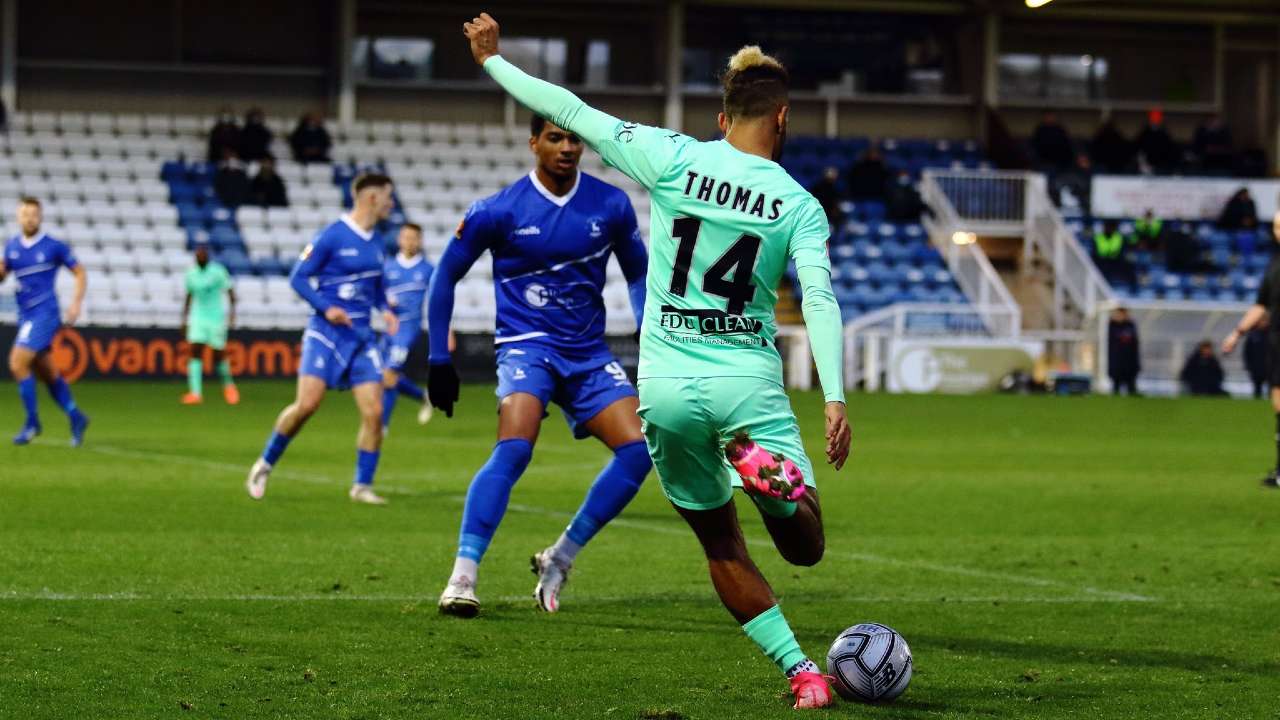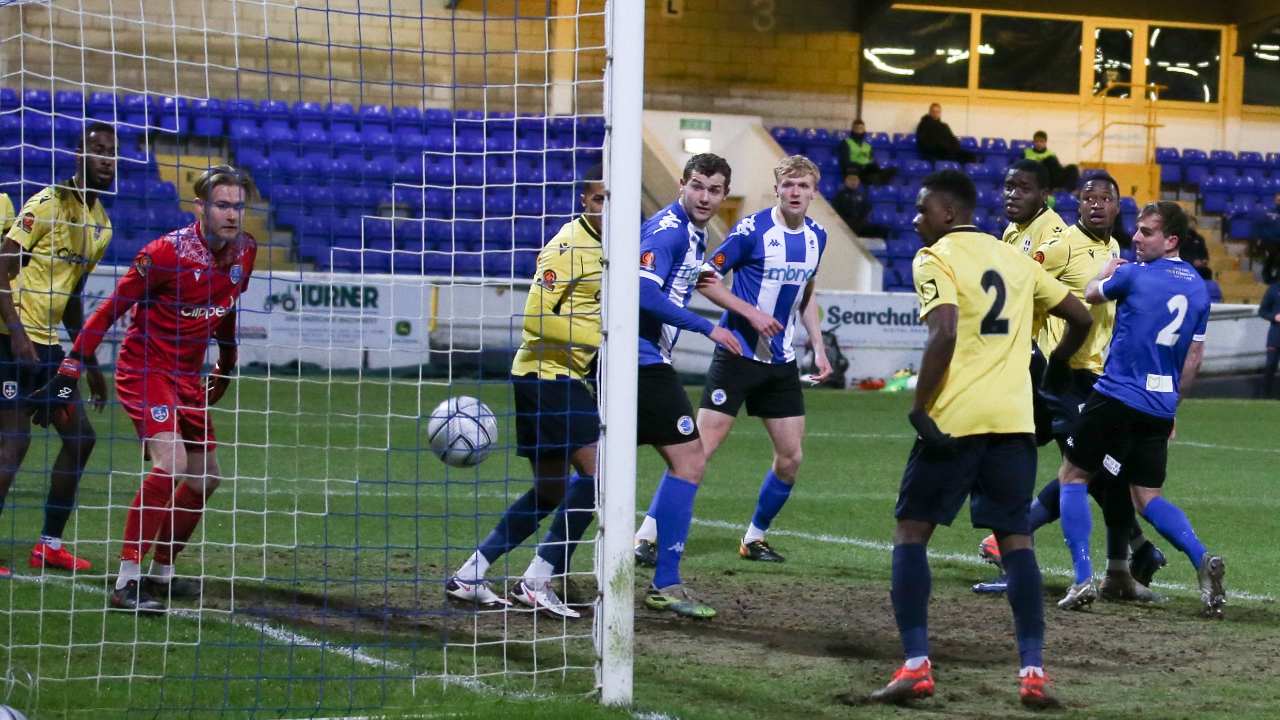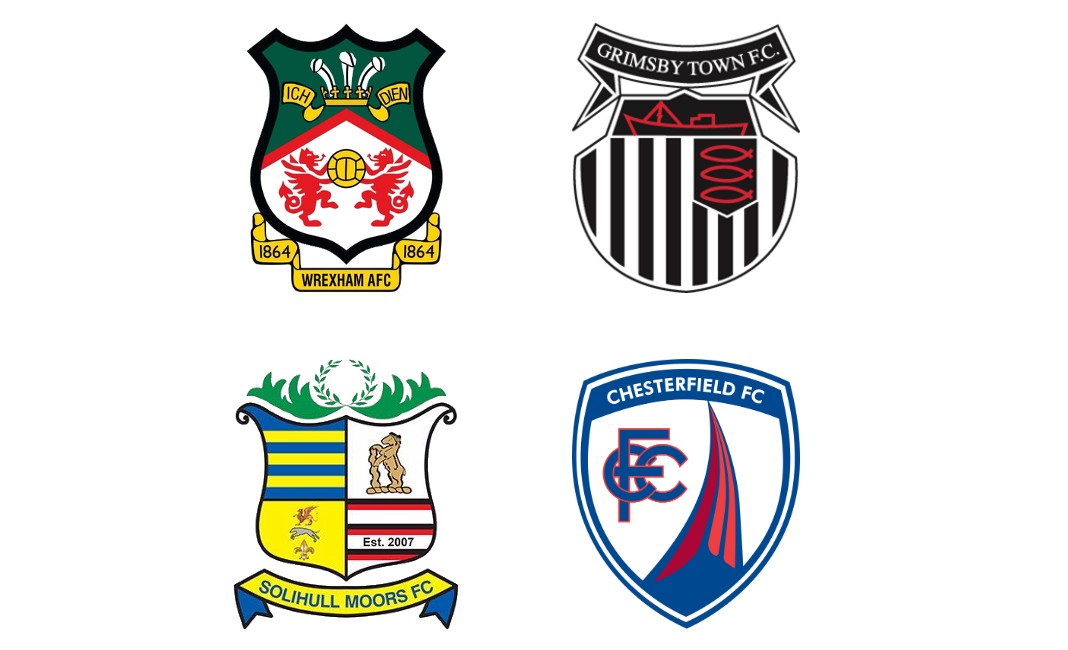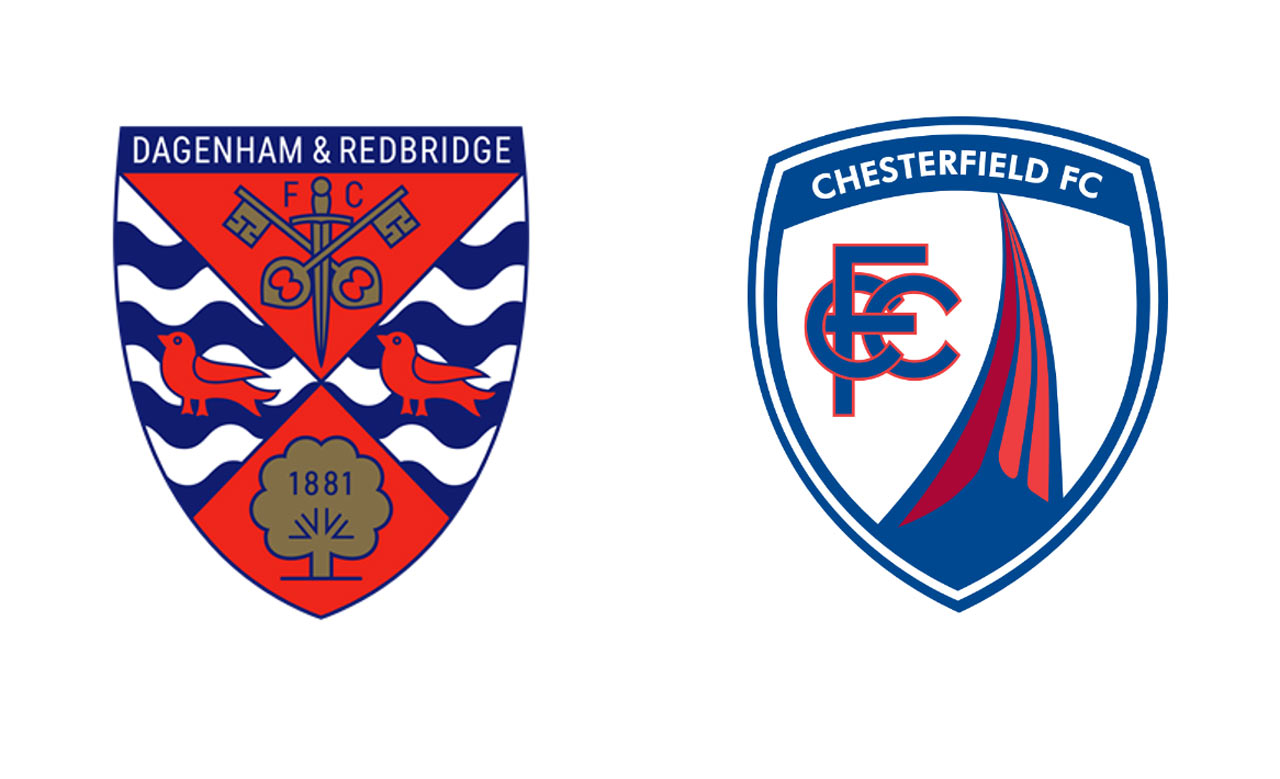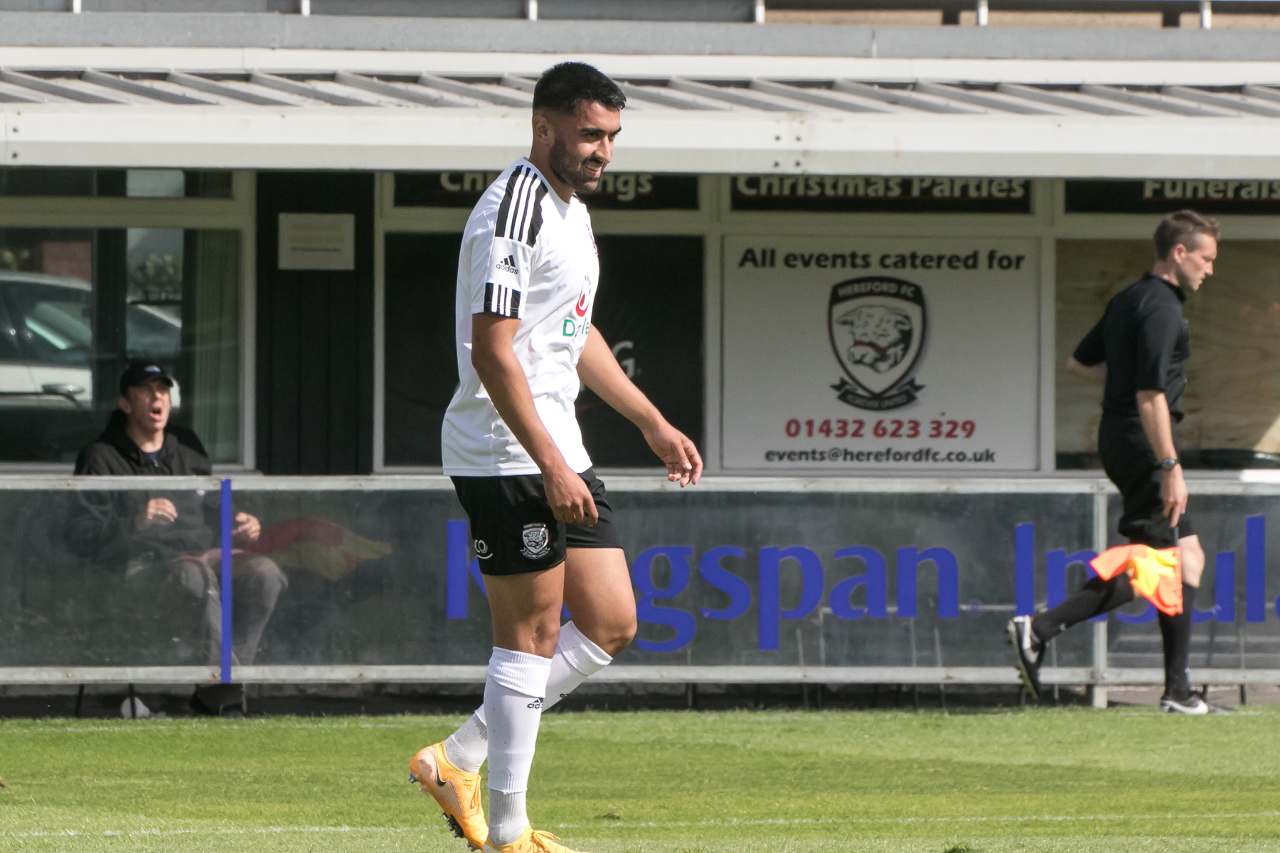By Jeff Brazier
Last week we saw Chorley comprehensively beat Derby's U23s (worth noting Derby's best players of that age were isolating with the first team) and Boreham Wood's Sorba Thomas make the move from The Vanarama National League to the Championship with Huddersfield Town.
You might ask why I'm relating the two to each other? Well, it got me thinking about the true (rather than the perceived) standard of England's fifth tier of football.
Is there a case to be made for it being a more effective route for young players to have a better chance at a career in the Football League? Rather than waiting in the U23s for far too long?
And, if this is the case, would the U23 sides of the footballing elite be better off blooding more of their young players at this level to avoid wasting talent?
The Case For National League Loans
As I watch The Vanarama National League week in week out it comes as no surprise to me that in cup games the teams and players at this level have the ability to compete with opponents from a higher level. This is proven by the standout performances of Sorba Thomas in the last few years that will now see him ply his trade in the Championship from now on. If we look a little closer at Thomas' move it gives us some clues as to how highly regarded The National League is to at least some Football League coaches.
Huddersfield Town in particular are a great example of giving opportunity to players from a lower level having nabbed Josh Koroma from Leyton Orient when they were a National League side. They're also managed by Carlos Corberan, a man who studied his craft in a dual role at Leeds United as U23s Head Coach and 1st Team Coach under Marcelo Bielsa. So, he knows all about how to develop youth players and isn't afraid to give the kids a chance.
If Sorba can make anywhere near the impact of Koroma who's scored 6 goals and made 16 appearances so far for Huddersfield this year they will have found yet another National League gem.
What Can Bigger Clubs & Their Young Players learn from Sorba, Koroma & Even Chorley's 3rd Round FA Cup Win?
Firstly, I would expect and encourage more and more U23 players to be knocking on managers' doors and demanding to go on loan to a suitable National League club. Most elite clubs now have 'loan managers', like my old youth team coach Paul Brush at Tottenham, for example.
Premier League loans can only be arranged within the transfer windows and in this window so far only 3 players have found their way from the Premier League to The National League. Compare that in the same timeframe to the 6 that have gone to League Two and 9 loans that have gone to League One and the Championship respectively. Does this reflect a lingering 'elitist' snobbery involved in football? Premier League clubs might be looking our way but are generally only offering 18-20yr old academy players to clubs in The Vanarama.
There are 9 players on loan in The National League currently from the Premier League which represents 1.6% of the playing staff at the level. Supporters of teams in The National League North will also know there are 4 loanees at that level too and I could only find one player on loan in The National League South. Regardless, it's still a relatively low number considering the 67 clubs across this league system and the undoubted education and opportunity on offer.
Can A Young Player Be 'Too Talented'?
This isn't just about the clubs though, often players want to go out on loan but believe they should be placed at a club higher than they are sometimes offered. It seems many sides believe that developing players older than the 18-20 age bracket might be too good for National League level.
If my assumption is correct, this misses a major point for me. Thinking your player is 'too talented' is maybe true from a technical outlook, but since when is talent enough to produce a professional footballer? Of course, getting kicked is not everyone's cup of tea but despite the obvious physicality in The National League there's also some great football played too. Take Barrow last year or Torquay this year as an example.
Would it be too much to suggest that a young player toiling away in a top tier U23 side would not benefit from learning to navigate a slightly rougher approach from opponents? Or experiencing first team football that requires you to grasp the mental acumen needed to navigate a dressing room full of outspoken men and domineering characters that have years of experience at league and National League level?
Real character building can be found in moving away from home comforts and realising what the game means to people whose livelihoods depend on results. There's also great power in creating motivation from understanding that if you don't want to play at this level for the rest of your career then you need to give your loan club your full respect with performance of maximum effort!
I want to stress here this isn't about players lowering expectations to reduce the chances of the potential disappointment of not making it in the Football League. It's about seizing an opportunity of regular competitive playing time which so many players miss out on and that only increases the chances of not making it. Of course, there is also fear that players will go out and, in some respects, fail. You wouldn't rule out that this would be in the backs of the players' minds and agents, too.
Jon Fortune, who played 123 games in the Premier League for Charlton, reminded me that years ago clubs with a specific gap in the squad would ask another club for a player on loan. But there has been a shift in recent years because of growing squads at the top level and the absence of reserve team football. Parent clubs are now as likely to be the ones reaching out to arrange a placement for a player that is ready for that stage of their development and to manage game time.
Who knows best, the player or the club? Both will state their case, but it's just opinions. Ultimately, if a player doesn't make it, who's responsible for that? I'd say the player must always be accountable (unless god forbid the reason is injury related), after all it is their career.
Sorba Thomas Serves As Inspiration
Sorba Thomas's story should serve as an inspiration. Exiting West Ham's academy at 15 years old and joining Boreham Wood's BW PASE Academy probably wasn't his dream but look at where that pathway has got him now.
It's worth noting that routes into the Football League via The National League aren't a rare occurrence anymore. It's now a path well-trodden by many Football League players and may serve as a reminder to players not getting game time in league football to consider it as a serious opportunity.
Jack Taylor recently went from Barnet to Peterborough, Brighton's Dan Burn was at Blyth and Darlington, Everton's Ben Godfrey was with York City and West Ham's Jarrod Bowen was with Hereford, too.
League One promotion contenders Peterborough United have been one of the most enthusiastic buyers of National League talent, recruiting the likes of Joe Ward (Woking), Idris Kanu (Aldershot Town), Ricky Miller (Dover Athletic) and Serhat Tasdemir (AFC Fylde) as well as the aforementioned Jack Taylor as part of a transfer policy that has seen the Posh pay significant fees for a host of prodigious 5th and 6th tier prospects.
Add Max Kilman's 2018 move from Maidenhead United to Premier League Wolverhampton Wanderers and Ethan Pinnock's development at Dulwich Hamlet (another outstanding academy) that has taken him to Brentford and you start to see opportunity not only for players but also for league clubs to blood their U23 talent in The National League. Surely that's better than than leaving them idle in the system? It might even save them a bob or two further down the line or increase the value of their player in the market.
Competitive Game Reality Vs Under 23 Comforts
For me it's clear that the National League is the 'reality' whereas U23 football is the anomaly, a level caught between potential and success that ultimately falls short of delivering a complete education for the majority unless you're one of the chosen few who are lucky enough to train regularly with the first team.
Contact with the first team is massive. Gone are the jobs we used to do on a YTS, no boot cleaning anymore hoping you'd get a decent wedge from your pro at Christmas. Academy and first team training facilities are now separate in most elite clubs. Take Bournemouth for example, there is a distance of 7 miles between the academy and first team training facilities. How can prospects model what they can't see?
You might think The National League only applies to certain types of footballer, less about technical ability and more about maturity and physical stature, but I believe that the sooner you can play first team football either on loan or coming through one of the National League clubs' academies, the better your chances will be of establishing yourself at a higher level and end up with a longstanding career. The talented players I mentioned above will testify to that I'm sure!
I've discussed with many of my ex-professional friends how physical attributes, personal maturity, strength of mentality and harbouring the right attitude and realistic expectations would all do well to be in place ahead of a loan move to The National League. But we debated how 'readiness' is arguably a product of the loan and not the precursor. It's more about the right club rather than the right time. This is so important but even now clubs do not always get their players in the right teams.
Finding The Right Club Is Vital
Paulo Vernazza, ex-Arsenal and Watford and now football agent told me that some parent clubs, usually the ones with Loan Managers will have a strategy and a plan for a player and will give careful consideration to finding the right club. But others will put a circular out to all the clubs which is certainly a quicker option but potentially gets the wrong teams calling. The good agents will go and help source the correct loan move using their contacts and knowledge of the lower-level clubs including style of play, formation and likelihood of receiving a run of games.
Bad loan experiences can be detrimental but should be viewed as a learning curve and an opportunity to build relationships and not taken as an indictment on one's ability to perform better elsewhere. If the saying 'you're only as good as your last game' holds merit, 'You're only as good as your last loan move' applies much less.
If a player's career was to go in a different direction after release think of how useful it would be to know you would always be welcome back at that club you impressed during a loan move, always good to have a plan B regardless of how 'rated' you are.
When I was coming through at Orient, I failed to recognise the importance of my loan moves to Scandinavia and non-league sides like Billericay and Boreham Wood. That blind hope that you only need the club you're at was part of my downfall, not preparing for the disappointment of release left me grabbing the first offer that followed instead of implementing a measured strategy to trial a range of clubs.
I wonder if all players have a pre-emptive solution for all eventualities or if the vast majority are simply reactive to whatever happens in the moment. You wouldn't approach a game of football with so little strategic detail so why would footballers leave their careers subject to a change in the wind?
Seizing The Opportunity
Take striker Max Watters, 21, who has just been bought by Cardiff after hitting 16 goals in 18 appearances for Crawley Town in League Two. He was given a one-year contract at Crawley because he played against them for Maidstone United in a pre-season friendly. A friendly he wouldn't have played in if it wasn't for the fact he'd been on loan at Maidstone in the past and was therefore welcomed back to get fit after being released by Darlington! Is it fateful or did a healthy attitude towards non-league football and the opportunities it presents make the difference and draw comparisons to the likes of Ian Wright and Jamie Vardy?
I also wonder how a Huddersfield U23 prospect might feel about the fact he'd been at the club from a young age yet in comes Koroma followed by Thomas and they're now ahead of him in the pecking order despite being the same age or worse even, younger! As all players know, or come to learn, this is football. It's not just survival of the fittest and most talented. It's survival of the players that have a plan and are strong enough to transition into other environments quickly without bringing any hang-ups of what happened at the last club along with them.
Young players also have to be honest with themselves about 'readiness' when choosing their next step in development. It can still be incredibly hard to turn down an offer from a better club offering limited game time to stay where you are, knowing continuing to play first team football would be better for your development than sitting on a bench somewhere. There are plenty of great examples where this 'gamble' has worked out.
I spoke to ex-Spurs defender Anthony Gardener about this. At 17 whilst at Port Vale he turned down Aston Villa to stay on and play 44 games for their first team before being sold to Tottenham where he stayed for 8 years.
Doesn't that show absolute belief in one's abilities and a recognition for what was best at the time? People might have argued it was lack of ambition. Rubbish. Anthony saw the experience of playing Division 1 football at the age of 17-19 to be priceless. The average age of a debut in the Premier league is 23 which is a stark contrast and potentially wasted years of not gaining valuable first team experience.
Overcrowded Academies & Experiencing Rejection
We already know that many players at academies don't make it for a multitude of reasons, mainly because there are too many players in the academy system and not enough opportunities waiting for them. I remember watching a great documentary, *No Hunger in Paradise, *which is about the youth football system in England.At the time of filming in 2017 out of all the boys who entered an academy at the age of 9, less than 0.5% of them made it. Or a made a living from the game either.
How many lose interest when experiencing that first rejection and don't make it back from the disappointment when their footballing bubble bursts? I wonder what percentage fall conveniently into the arms of another club on a similar standard versus those that don't land anywhere near it?
In England we have some of the best academies in the world. But with so much money at the top of the game and the over reliance on winning at all costs and winning right now it's no surprise a lot of clubs create multi-year group teams, U18s U21s U23s etc. My personal view is once a player gets to the U23s he is effectively in a holding pattern until the club is ready to play judge and jury on his career.
What would you rather be? A 20-year-old playing in the U23s at an elite academy whose future is far from assured or a 20-year-old playing regularly in a National League first XI with 50+ games under your belt?
Let's reframe that question. Which carries more weight for an agent to say to a manager; 'I have a talented kid whose played 50 games for Hartlepool' or, 'I have a talented kid who has played 50 games for Brighton U23s?'
Varying pathways aside, the U23 system is likely to fall short of providing the full reality of what it takes to play Tuesday, Saturday, Tuesday under pressure. Clubs do a great job of developing talent, but Premier League 2 and its almost contactless nature stops short of giving players the complete education – regular first team football in matches that truly matter played by men with something to prove and something to lose.
This is why Derby U23s may have been found wanting against Chorley from the National League North and why many Premier League U21s side fail regularly in the EFL Trophy against lower league opposition. Only Leicester got to the quarters of last year's competition before losing to Newport County.
If a few more players dare to be brave and give The National League a shot the rewards have shown to be fruitful. Just ask Thomas, Koroma, Pinnock etc. And in the same spirit, if the bigger football clubs can cast aside their outdated views of the standard of non-league football, they might just find their young players can flourish in the fifth or sixth tier. Too good? Put them in your first team then!


